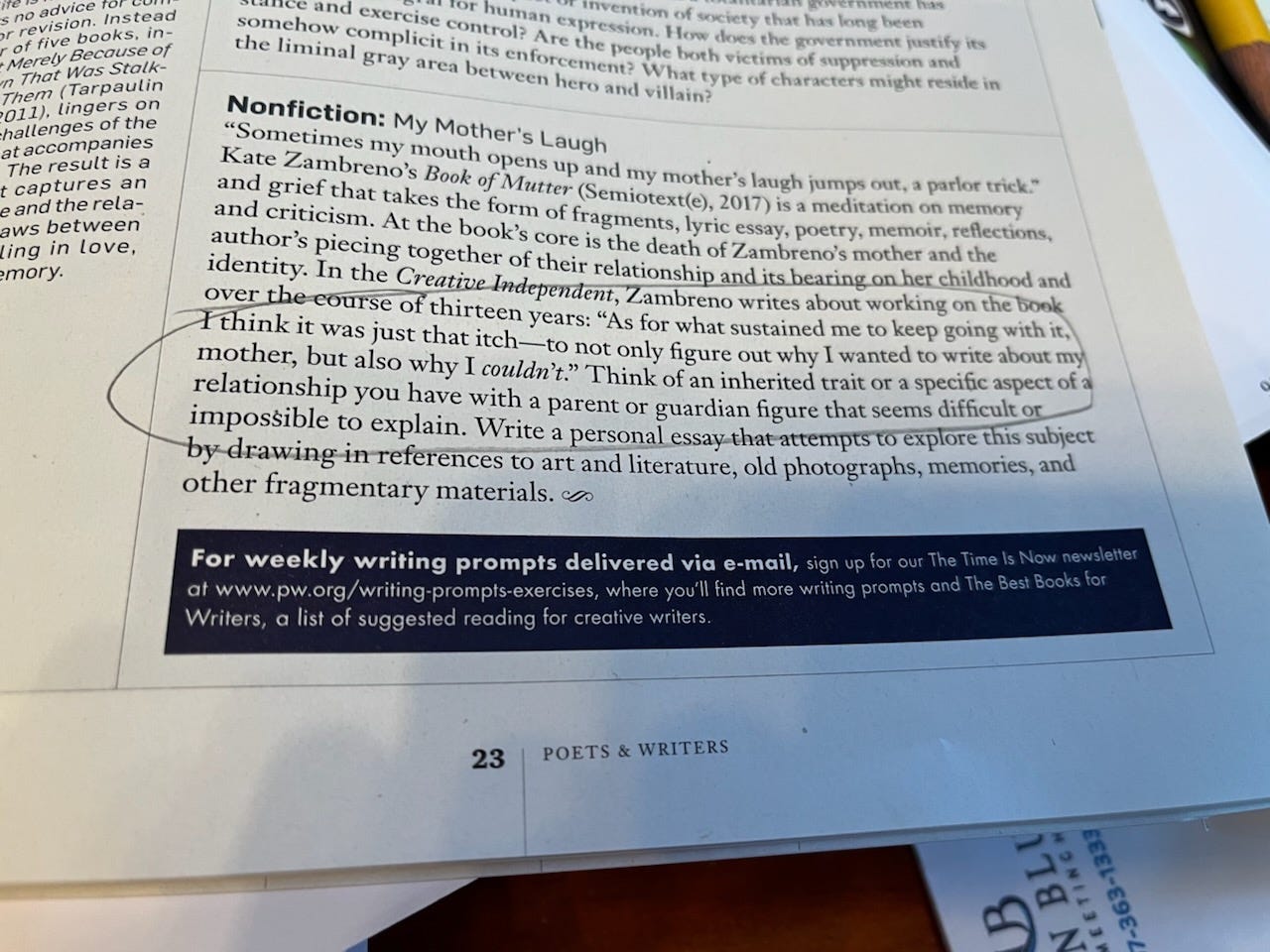In the last couple of weeks, my memoir has been blown to bits.
For years I’ve been dutifully writing and editing scenes, extrapolating where I think they should go, and trying to sketch out a story arc when — to be perfectly honest — I never knew what the story is.
Or, more accurately, the question the story is asking. In other words, what is the question the memoir will attempt/is trying to answer, both for myself and for the reader?
Somewhere I recall a teacher or memoirist saying that every scene and aside in the memoir has to be an attempt to answer one very specific question over the course of the book.
Actually, I’ve heard this more than once. But writers can be stubborn, especially when we latch onto a particular idea that we think will make the writing easier/appeal to editors/hit the bestseller lists…and then, all bets are off and we turn into a dog with a bone, growling whenever something or someone comes close to challenge us. After all, it’s far easier to guard our illusions to the death.
I’ve long traveled with the idea that in my memoir, first I’ll examine this, then I’ll pick apart that, and come away with enough revelations to satisfy me — and the eventual reader — so that I can tie it up with a neat frilly bow.
HAHAHAHAHAHAHAHAHAHAHAHAHAHA!!!!!!!!!!!!!!!!!!!!!!!!!!!!!!!!!!!!!!!!!
So…back to the question: What is the question I’m trying to answer with my memoir?
I’ve noodled around with it in the last few weeks. First it was: Who was my mother? which leads to Who am I? before entering into an uneasy détente with this:
Why am I the way I am, warts and all?
I know, pretty vague. But once my antenna were pointed in this direction, other things started to pop up.
Boy did they ever.
There are, as they say, no accidents.
Whenever I see a stack of old writing magazines at a thrift shop or a yard sale, I snap them up: Poets & Writers, Writers Digest, The Writer, etc… It can take months to get through the stack, but eventually I do.
This past week, I’ve been plowing through the May/June 2018 issue of Poets & Writers. I froze when I read this passage.
“To not only figure out why I wanted to write about my mother, but also why I couldn’t.”
This is so profound. I actually had to read the sentence out loud a few times so I could totally grasp what Zambreno was talking about.
I pulled up the Creative Independent article cited in the Poets & Writers piece: “Kate Zambreno on writing the impossible book,” which of course yielded even more gems, including this one:
The work just becomes its own sort of animal. I don’t mean this to sound pretentious, but the way this book was formed was basically a process of sedimentation that happened over many years. I don’t always completely understand the construction of it. These are some of the pieces and parts that I’ve assembled over time. If I was going to write it now, it would not be the same book at all. I knew nothing when I started trying to write this book. I can’t speak for other writers, but you can’t let not knowing what you are doing stop you.
At one point, after a few sleepless and sleep-filled nights [the unconscious is funny that way], the light bulb went off:
My memoir isn’t about the scenes I write or the hazy memories I recover or the lousy things my mother did, it’s about the struggle that arises in the process. In other words, I have to make my struggle to tell the story the story. Or at least part of the story.
So — for now anyway — this is my question:
I’ve spent decades examining the lives of other people with a fine-tooth comb. Why can’t I look at my own?
On Tuesday, as I was working on this piece, I read a post from Aimee Liu that affirms the importance of having a single, powerful question to ask over the course of a memoir:
Make sure to hook your story to your spine with a strong, clear, urgent question up front. Generally, the hook is a scene or challenge, like a father’s deathbed request, that arouses the reader’s interest and emotional curiosity. The question posed by this scene, though, has to be strong enough to power the whole story, so make sure it’s packed with urgency, mystery, and suspense proportional to your structure. [italics mine] Mild intrigue could be enough to spark a brief essay, but the abiding question for a book-length memoir ought to be life-changing for the narrator.
Indeed.
I may not ever be able to fully answer my memoir’s question. But it makes it a whole lot easier to organize my memoir around it.
This Week’s Takeaway: It’s ridiculously easy to get buried in the weeds when you’re deep in a project, especially when you set a goal of producing a specific number words/pages/whatever each day. That’s great for getting words on the page, but I’ve found that it also makes it easy to veer off in unfocused directions. Which is okay — I’ve been known to Edith Bunkerize at length…and then some. But it’s also important to occasionally sit back and let your unconscious tell you what you’re really working on: Look for the question that your current project most needs you to answer. Whether or not it’s ever answered is kinda besides the point.




Why can't you look at your own? Is it hard to see yourself except through your mother's eyes? Or hard to see your mother except through the perspective of her daughter? I think this might be a breakthrough as you finally have an internal conflict driving the story. Mother-daughter stories are always complicated relationships!
Thank you for this!